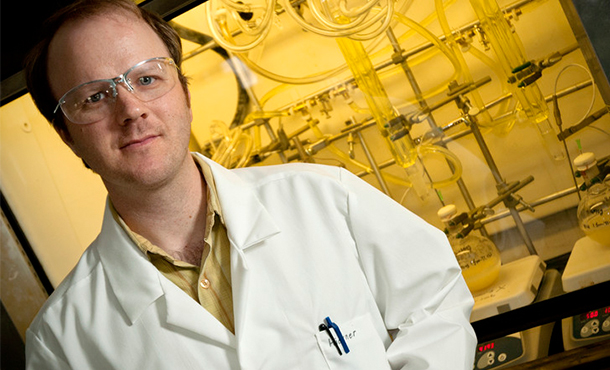
Michael Hickner, associate professor of materials science and engineering, chemical engineering and chemistry at Penn State
DOE grant focuses on next-generation anion exchange membranes
10/17/2016
UNIVERSITY PARK, Pa. -- Low cost, durable, commercially viable polymer-based anion-exchange membranes, a critical component in fuel cells and other energy-conversion devices, are the focus of a $2,300,000 grant from the U.S. Department of Energy to an industry, government, university collaboration including Penn State.
The project was one of 16 funded as part of the $37 million DOE Advanced Research Projects Agency-Energy (ARPA-E) Integration and Optimization of Novel Ion-Conducting Solids program, which aims to pave the way for technologies that overcome the limitations of current battery and fuel cell products. Michael Hickner, associate professor of materials science and engineering, chemical engineering and chemistry, is the Penn State co-principal investigator on the project. He will work with Michael Yandrasits at 3M Company, St. Paul, Minn., who is the principal investigator on the project and Bryan Pivovar, co-principal investigator from the National Renewable Energy Laboratory in Golden, Colo.
With a goal of developing a new anion-exchange membrane technology with applications to fuel cells, electrolyzers, flow batteries and other energy conversion devices, they will evaluate new concepts in anion exchange membranes with low-cost polymer backbones and novel cations. They will focus on commercially-scalable polymers that are stable in a basic environment and meet the ARPA-E requirements for resistance, stability, mechanical properties and cost.
"This important university, industry, government lab collaboration has the potential to move the field forward in new anion-exchange membranes," said Hickner. "There's not a strong consensus in the field on how to scale-up these materials, so we hope to bring new insights to the community through this work."
The researchers will eventually manufacture small quantities of the chosen polymers in 3M's pilot-scale coating equipment and test them in devices.



